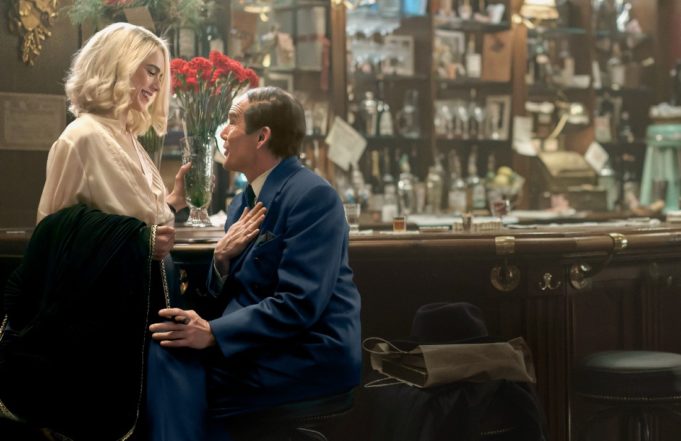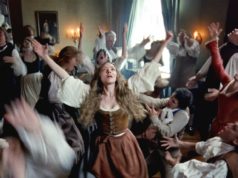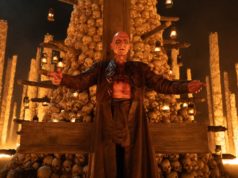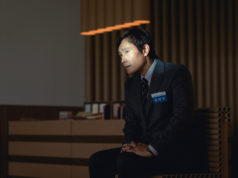In his autobiography Musical Stages, the Broadway songwriter Richard Rodgers described the odd impression from his first meeting with his future lyricist Lorenz Hart: a balding man under 5 feet tall wearing a tuxedo jacket and pajama bottoms, whose face “was feature for feature handsome but seemed to have been put together wrong.” Rodgers also described his 24-year working partnership with the man: Hart would disappear for weeks at a time, going on epic binges of alcohol and rough sex with anonymous men. When he ran out of money, he would reappear at Rodgers’ office, take all the music Rodgers had composed in the interim, lock himself in a room, and emerge a few hours later with polished and enviably clever lyrics. Then he would get paid for the previous batch of songs, and the whole cycle would start again.
During a golden age of American songwriting that included Irving Berlin, Cole Porter, and Ira Gershwin, Hart might just have been the most brilliant wordsmith of them all. His acerbic, playful, depressive, terribly funny lyrics cut against the conventional prettiness of Rodgers’ music in fascinating ways. With all that, you can still understand why Rodgers eventually terminated the relationship and partnered up with the less gifted but far more stable Oscar Hammerstein II.
The movies already tackled the tormented Hart once before in the musical Words and Music, but because that film came out in 1948, it sanitized Hart’s life to a ridiculous extent. He was portrayed by Mickey Rooney, and the best thing you can say about that is that the 5’2” Rooney was the proper height. This week, Richard Linklater’s Blue Moon casts Ethan Hawke as Hart and uses CGI and other camera tricks to make him look under 60 inches tall. Part of me wishes that the filmmakers had shaved Peter Dinklage’s head and let him go to work, but Hawke’s performance is more than persuasive enough. In fact, it might just be his best work ever.
The story takes place on the night of March 31, 1943 at Sardi’s, a favorite hangout of Hart’s that he name-checked in “Way Out West (on West End Avenue)”. It’s the opening night of Rodgers and Hammerstein’s Oklahoma!, and the show’s corn-fed optimism has so nauseated “Larry” Hart that he leaves early to bitch about its badness to a bartender (Bobby Cannavale) and an Army serviceman (Jonah Lees) who’s playing the piano. The only thing lifting Larry’s spirits is his impending meeting with Elizabeth Weiland (Margaret Qualley), a real-life Yale sophomore who corresponded with the great songwriter. Larry is besotted with her beauty despite his homosexuality and being 27 years older than her.
Like more than a few of Linklater’s films, this one suffers from staginess, as Larry’s theatrical self-pity and alcoholic’s promise that he’s not going to drink tonight fills the space even after Rodgers (Andrew Scott) and the cast and crew of Oklahoma! flood into Sardi’s for their afterparty. The film is such a one-man show that Scott barely gets a word in edgewise, although Qualley manages to display her skill when Elizabeth tells a mortifying story about her attempt to have sex with a Yale upperclassman whom she’s been carrying a torch for. Also, I could have gone without the cameos by famous characters, as Larry gives an autograph to future film director George Roy Hill (David Rawle), receives criticism of his lyrics from 13-year-old Stephen Sondheim (Cillian Sullivan), and inspires fellow drinker E.B. White (Patrick Kennedy) to write Stuart Little.
What keeps the movie from wearing out its welcome is Hawke’s uncanny evocation of the guy at the bar who drinks too much and talks even more, tossing off allusions to Shakespeare and Ferenc Molnár and cracking jokes about his own unattractiveness and his preference for men. The film’s visual drabness serves to throw Hawke’s greatness into higher relief, as his dramatic gestures to compensate for his shortness help communicate the terrible loneliness of a man whose wit and awareness of his genius do nothing to make him consider himself any less of an unlovable freak. If Hart was responsible for dazzling wordplay like “Beans could get no keener re- / Ception in a beanery. / Bless our mountain greenery home,” he was also the guy who wrote, “Look at yourself, if you had a sense of humor / You would laugh to beat the band” and dozens of other lyrics that I quote whenever I find myself in a foul mood.
Blue Moon opens in three AMC theaters the same week as the Bruce Springsteen biopic, and the contrast is illuminating. The Boss struggled with depression but lived at a time when help was available to him. Hart didn’t have tools such as AA and refused to see a psychiatrist in any event, and so he died of pneumonia contracted during one of his drunken benders at the age of 48, seven months after the timeframe of this film. The Springsteen movie is on far more screens, but Blue Moon is sharper, more entertaining, and better acted by the lead. Despite its shortcomings, Hawke’s performance makes it the music biopic to see.
Blue Moon
Starring Ethan Hawke and Margaret Qualley. Directed by Richard Linklater. Written by Robert Kaplow. Rated R.












